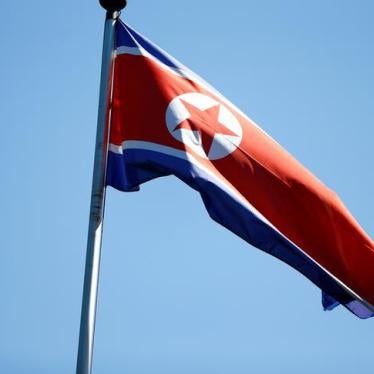This week President Obama will host the head of the Vietnam Communist Party, Nguyen Phu Trong, at the White House. The meeting is a curious event—partly because Trong is not a head of state but instead the leader of Vietnam’s constitutionally-mandated ruling party—but also because Vietnam has done so little in recent months to deserve the reward that is an Oval Office meeting. It remains a thoroughly autocratic and undemocratic state ruled by a single party, headed by Trong, in which repression, torture, and religious persecution are the norm.
What is President Obama hoping to accomplish?
To the administration’s credit, it has never shied from raising rights concerns with Hanoi. President Obama has publicly flagged political prisoners in public statements, and his ambassadors and envoys are instructed to raise human rights concerns in all diplomatic exchanges.
The problem is that the messages are clearly not getting through.
A few weeks ago, Tony Blinken, Obama’s former White House Deputy National Security Advisor and current Deputy Secretary of State, visited Hanoi. According to the State Department, Blinken pressed the Vietnam government on human rights issues and raised concerns about the continued jailing or harassment of dissidents, and urged Hanoi to better demonstrate a commitment to reform. But he came away with no pledges on human rights, no commitments, and no political prisoner releases.
Blinken’s trip came only a week after another senior State Department official, Tom Malinowski, who heads the department’s office responsible for human rights issues, visited Vietnam to hold a human rights dialogue. Malinowski and his delegation met with senior government and security officials, raised concerns about political prisoners, made visits to detention sites, and met religious leaders. Malinowski told the Vietnamese government the same thing US ambassadors have been telling them for years: that rights reforms are a necessary component of improved ties with the US government.
These trips cannot be called a success—and yet the Obama Administration is rolling out the red carpet on Tuesday.
Not only did Hanoi make no concrete pledges or commitments during the dialogue, during Malinowski’s visit their security services harassed dissidents and a prominent blogger, Nguyen Chi Tuyen (known as Anh Chi), was brutally attacked by thugs—almost certainly government personnel in plainclothes. Photographs of his battered head and bloodstained face were soon shared by dissidents online. (On May 19, another activist, Dinh Quang Tuyen, was assaulted in Ho Chi Minh City.)
Congress has weighed in with Hanoi too. A bipartisan delegation of members of Congress visited around the same time as Malinowski, headed by Rep. Eliot Engel, the ranking Democratic chair of the House Foreign Affairs Committee (HFAC), and Rep. Matt Salmon, the Republican chair of the HFAC Asia subcommittee. And this group too raised rights concerns, and repeated pleas made by another delegation to Hanoi—headed by Rep. Nancy Pelosi and Ways and Means ranking chair Rep. Sandy Levin—only weeks before. They too said that Vietnam’s failure to demonstrate commitments to reform would undermine US-Vietnam ties.
The bottom line is that these engagements do not seem to be leading to reform or any meaningful action to improve human rights by Vietnam.
State Department officials still insist that the pressure, and diplomatic efforts, are working. They point to lower numbers of prosecutions of dissidents, and Hanoi’s recent ratification of two human rights treaties. In an op-ed in Politico on June 8, for instance, Malinowski argued that “Under the spotlight of the TPP negotiations, Vietnam has released prisoners of conscience, bringing the total number down to around 110 from over 160 two years ago.” He also contrasted the high number of persons for peaceful political expression in 2013—61 cases—with only “one case” in 2015 so far.
But these have been baby steps at best. Yes, the number of political prisoners in Vietnam has dropped by about 50 since 2013, but few of these were released pursuant to reform steps: in many cases, released detainees simply completed their sentences and are now out on probation, effectively silenced. Further political or dissident activity will land them back in prison. In any case, the State Department list is incomplete: Human Rights Watch analysis shows well over 200 prisoners back in 2013, with the current total number of political prisoners now at least 135. And while it is true that fewer dissidents are being convicted, there are still cases (not just one) and the government anyway now has new methods, as the beating of Nguyen Chi Tuyen demonstrated. Vietnamese dissidents now say that violence or harassment by plainclothes police thugs is the new norm.
In sum, critics of the government in Vietnam are still facing enormous dangers; the dangers have simply changed.
President Obama should not be rewarding rights abuses on this scale by meeting with Secretary General Trong. But if he must, he needs to raise the volume on the human rights concerns—especially so if the two countries are planning to announce a new level in their diplomatic ties.
Otherwise, the message will be: “We want you to reform, but we’ll reward you even if you don’t.”
John Sifton is Asia advocacy director at Human Rights Watch. Follow him on Twitter @JohnSifton.







